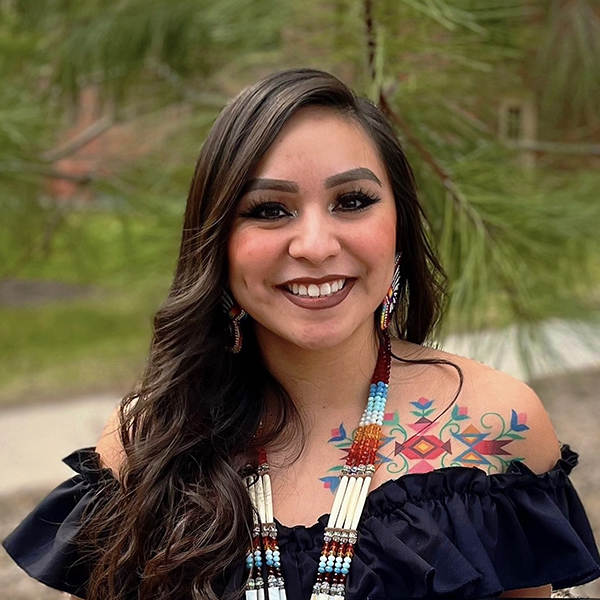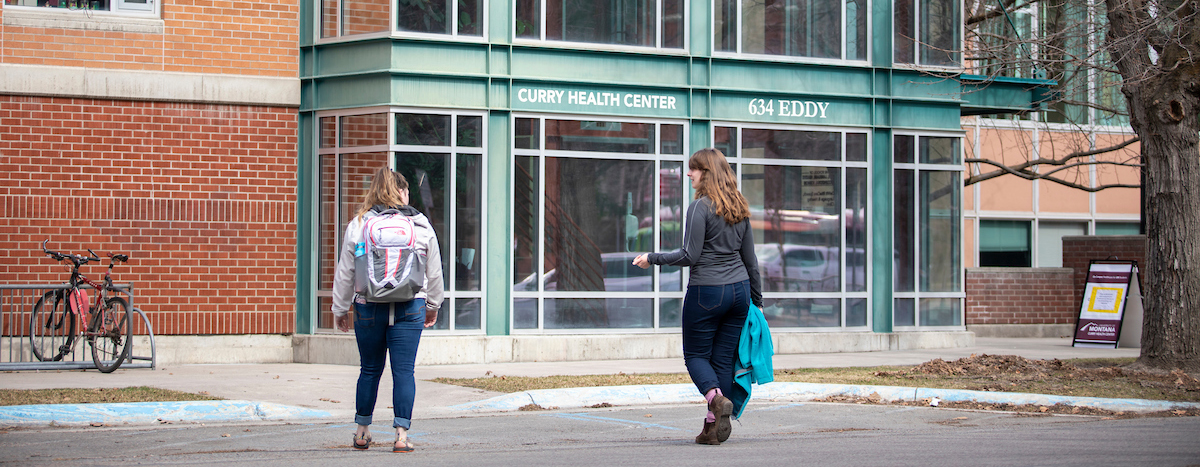Advice, Challenges and Resources for First-Generation Students
A first-generation college student is a student whose parents, guardians or close family members did not attend college. While there are exceptions to this definition, it always comes down to a first-gen student being a trailblazer – the first to explore a new academic experience.
Navigating new waters is never easy, and first-gen students experience challenges that second- and third-generation students might take for granted. But at the University of Montana, if you are a first-generation student, you are not alone. Nearly 25% of our student population is first-generation.
To help recognize the challenges and opportunities of being a first-generation student and the resources available, we reached out to a soon-to-be graduate for advice she wished she had known on her first day of school as a first-generation student.
Meet Valene TalksDifferent, 2023 National Outstanding Undergraduate of the Year
Valene was raised on the Fort Belknap Reservation in north-central Montana. She’s the first in her family to attend college, and she’s a semester away from graduating with a bachelor’s degree in public health and a minor in Native American studies.

During her time at UM, she’s been nationally recognized as an Outstanding Undergraduate of the Year, received several scholarships for her demonstrated leadership, earned a full-time job at the All Nations Health Center in Missoula and preserved her culture through various student organizations and events.
Valene is humble about her long list of accomplishments, but she’s open about the initial difficulties of coming from a tight-knit community to a campus with new faces everywhere. Valene acknowledges she experienced the pitfalls faced by many first-generation students, including isolation and the intense pressure to succeed.
Valene overcame a rough start at the University and prospered, thanks in part to drive and determination, but also thanks to resources on campus, including staff within UM’s American Indian Student Services office. As she nears graduation, she has great advice for any first-generation students about to start their college journey:
Valene’s Advice for First-Generation College Students
1) Focus on Mental Health
“I definitely had different barriers and challenges in my academic career, and I just wish I had more access to talk about it. I have done a lot of internal work, individual work, on myself that people have to realize you have to do when you’re out by yourself trying to succeed. But I wish I had counseling throughout my college.”
2) Find Your Community
“I was able to find my own community and find people who were experiencing the same things I am. Finding the culturally relevant activities that helped with my identity was really, really helpful. And just finding community has helped immensely. I have people here that I can be myself around, and that’s really important. I have been really thankful to be included in all different types of cultural things that help my identity. People who don’t have their identity get lost in other things, and that is what has helped me keep going.”
3) Put Yourself Out There
“I was very shy, and I’m still pretty shy, but I’ve come out of my shell. Finding the right people will really help you do that. Be yourself, trust in yourself. You’ll be directed to the right direction you need to be. Trust yourself and put yourself out there, because that’s what it’s about, the experience, having a good experience in college by putting yourself out there and reaching the right people.”
4) Practice Time Management
“Time management is definitely something. Learning how to manage your time where you’re able to find time in your day to take care of yourself. That stems back to mental health. Effectively getting tasks done is learning how to time manage.”
5) Seek Out Available Resources
“Reach out to resources. When I came here, I didn’t know about any of the services that were actually provided. Like the American Indian Student Services, I didn’t know about that. But once I got in touch with that, that’s been really, honestly, impactful on my education.”
Resources Available to First-Generation Students (and all students)

Are you wondering what resources are available to make your college education easier, whether you are a first-generation student or not? Check out these free programs and campus offices that can make a huge difference in your college experience starting on day one:
TRiO Student Support Services
TRiO Student Support Services (SSS) is a free resource for all first-generation and other qualified students. Alongside a community of peers, SSS offers a network of academic advisers and several game-changing resources, including tutoring, scholarships and book and technology loan programs. Applying to TRiO is free, and they’ll be there for you from orientation to graduation.
Curry Health Center
Curry Health Center is a compassionate place to receive low-cost counseling services and free wellness resources, including materials on stress management, safe partying, safe sex, exercise and healthy eating. This student-focused center also is the spot to receive medical and dental treatments without leaving campus.
Office for Student Success
Every student on campus benefits from the Office for Student Success. Several resources, including tutoring and academic advising, are free, alongside programs like the Four Bear Program – helping students graduate on a desired timeline.
Writing and Public Speaking Center
The Writing and Public Speaking Center takes online, in-person and drop-in appointments to help with these two challenging components of college life. Expect to encounter undergraduates, graduates, faculty and staff all using the collaborative nature of the center.
UM Financial Aid Office
The Financial Aid Office on the fifth floor of Aber Hall is an excellent resource for understanding all the different types of financial aid, including several alternatives to loans such as grants and scholarships. First-generation students are eligible for a wide variety of free financial aid.
UM Office of Financial Education
The Office of Financial Education offers free one-on-one advising for all financial questions and burdens, including budgeting, credit scores and financial aid options. The office also hosts several workshops throughout the year covering similar subjects.
GrizHub
GrizHub is the leading UM directory for student news, clubs, organizations and intramural teams. It’s an excellent resource for finding the community you’d like to join. GrizHub also is the spot to learn about events happening in and around campus.